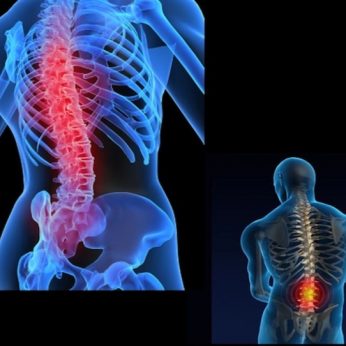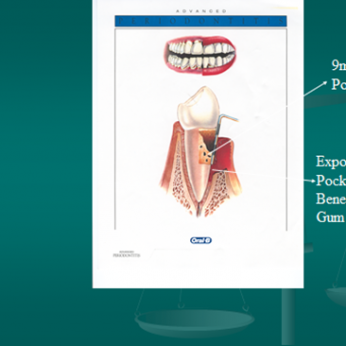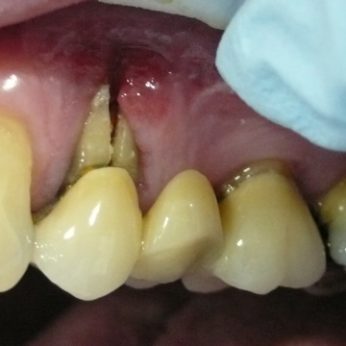MEDICAL DEFENSES THAT WORK

Each and every theory in a DUI case is based the assumption that the driver is a normal, healthy, average individual. That’s what the science is based on, that’s what the machines are calibrated to assume and that’s what the police are taught to expect. The breath machine does not know if you have asthma, it doesn’t know if you’re running a high fever or otherwise have a condition that makes you unsuitable for breath testing. Similarly, the Officer is not trained to understand the nuances that disabilities may have on field sobriety tests.
There are countless medical conditions which can affect the accuracy of chemical testing and the appropriateness of field sobriety exercises. The following are examples:
-
Pre-Existing Injuries To Back, Legs, Etc.

Field Sobriety tests which are balance dependent are inappropriate for any subject who has injuries to their neck, back, feet, legs or muscles in their extremities. A police officer who is aware of any of these conditions should not employ any balance dependent tests but should, as an alternative use other tests which do not rely on balance but rather test mental abilities.
-
Flu

People who have the flu are also inappropriate subjects for breath testing. This is because alcohol is water soluble and is attracted to the mucus that is found in your respiratory system when you have a cold or the flu. As you breath out under force into an Alco-Sensor VXL the air from your lungs which is what the breath tester is supposed to measure mixes with the alcohol that has been absorbed in the mucosa and has an additive effect on your breath test results.
-
Fever

The breath test devise assumes that the temperature of your expired breath is 34 degree Centigrade which is equal to only 93.2 degrees Fahrenheit. Our normal temperature is 98.6 degrees Fahrenheit which is equal to 37 degrees Centigrade. This is important because studies have shown that the average breath temperature of DUI arrest subjects is approximately 35.5 degrees it. Laws of physics tell us that there is an 8.6% false high for every degree centigrade about the assumed 34 degrees.
-
Pre-Menstrual/Menstrual

Women who are either pre-menstrual or having their period often experience elevated body temperature which can affect the reliability of a breath test device which is calibrated to assume normal temperature.
-
Diseases of the Lungs

Diseases of the lungs can most certainly affect a subject’s ability to provide an adequate breath sample for a devise like the Alco-Sensor VXL. If a subject is unable to provide a breath sample because of lung disease they may be viewed as being uncooperative and an officer may lose patience and insist upon a blood test which may unnecessarily lead to a refusal allegation. In addition, certain inhalants contain alcohol which would obviously affect the results.
-
Gastric Reflux Disease (Heartburn)

People who suffer from gastroesophageal reflux disease are inappropriate candidates for breath testing with an Alco-Sensor VXL device. The heartburn associated with GERD is caused by acids from the stomach entering the esophagus because of a dysfunctional esophageal sphincter. As a result, the gases from un-metabolized alcohol in the stomach mix with alcohol coming from the lungs in the trachea and the devise has no way of distinguishing between the two sources of alcohol. This is more than theoretical since alcohol is GERD inducing. AW Jones, one of the most distinguished scientists in forensic alcohol has acknowledged that GERD can adversely impact a breath test.
-
Diabetes

Diabetics are subject to a condition known as hypoglycemia which can cause symptoms that mimic intoxication. Even the DMV has recognized that persons in a hypoglycemic state exhibit an odor from ketoacidosis which resembles the smell of alcohol. In addition, a person who is hypoglycemic can have slurred speech, confusion, poor reflexes and a flushed face.
-
Inner Ear Conditions

Individuals who suffer from inner ear injuries, vertigo or other balance related deficits are obviously inappropriate candidates for balance dependent field sobriety testing. Unfortunately, police officers who are conducting field sobriety tests rarely ask a subject if there is anything wrong with them that may affect their ability to perform the tests. They only ask if you’re under the care of a doctor or dentist and if you have any physical disabilities.
-
Attention Deficit Disorder

Adult ADD/ADHD has become a recognized diagnosis for millions of Americans. Field sobriety tests are designed to test not only physical abilities like balance but also mental abilities. Each and every field sobriety test has a component of mental ability and those are designed to determine your ability to divide your attention adequately. Studies have shown that the ability to divide attention is effected at blood alcohol levels at or above a 0.08%. The very essence of ADD/ADHD is the inability to divide attention. Persons who suffer from this disorder have great difficulty in follow instructions.
- Periodontal (Gum) Disease

The Alco-Sensor VXL Breath Testing device does not have a mouth alcohol detector or a slope detector. The device assumes that the breath sample is coming from the deepest part of your lungs. People who suffer from periodontal disease have pockets in their gums due to bone loss. The more sever the condition, the deeper the pockets. Alcohol can be trapped under the gums in the periodontal pockets especially when drinking is accompanied with eating. If you blow into such a devise under pressure, un-metabolized alcohol that has been trapped in your mouth can create a false high reading.
-
Dentures

Dentures pose a similar problem for an accurate and reliable breath test result on an Alco-Sensor VXL. Not only can un-metabolized alcohol be caught under dentures to cause a false high, but many adhesives used with dentures absorb alcohol. Studies in respected scientific journals confirm that dentures can affect the reliability of breath tests that do not have mouth alcohol detection.
-
Faulty Bridge Work

Faulty Bridge work creates the same problem, retention of mouth alcohol that is not properly measured by a breath testing device like the Alco-Sensor VXL.
View Extensive DUI Medical Questionnaire
View Slideshow Presentation on Medical Issues In DUI Cases
Call (949) 497-1729 for a free consultation.






